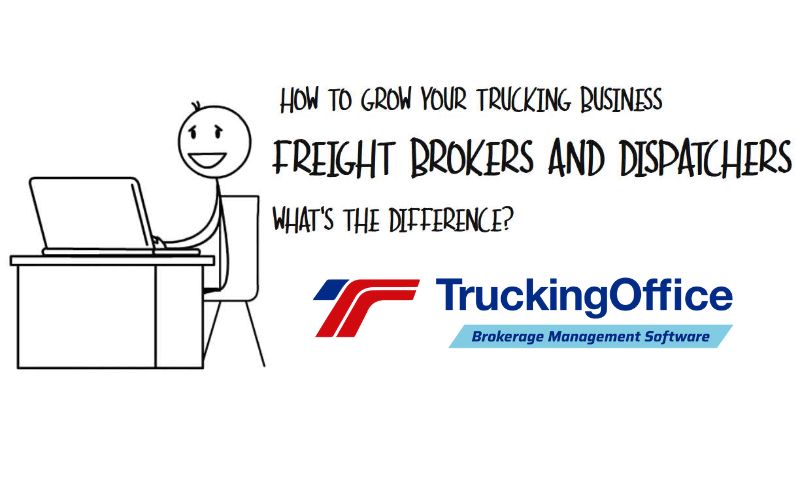Some owner operator businesses look for ways to expand their company. The bottom line needs to go up – but the funds to invest in another rig or a secondary driver just aren’t in the bank. So they move laterally as a freight broker for other drivers. It can be a good option if the broker understands the limits of the job.
Brokers or Dispatchers?
Freight brokers work to find carriers for their clients. They may put loads on load boards to get independent truckers to haul freight, or they may reach out to a carrier they trust.
When an independent trucker wants to grow their business, brokering trucks is a low-investment way to go. With a trucking authority to assign loads to other drivers and a sharp knowledge about the logistics industry, it can be a viable next step. But there needs to be a strong commitment and organizing software to make it work.
Brokerage authority isn’t cheap. Investing in yourself as a broker as a way to build your trucking business has to be legit and handled properly. If starting out as a broker is too expensive, consider working as a dispatcher first. Without the cost of a bond and paying for the authority, it may be a better way to develop your trucking business.
Maybe another choice is to become a dispatcher. What’s the difference?
Freight Broker and Dispatcher
Understanding the difference between a freight broker and dispatcher may look hard, but maybe we can clear up the confusion.
A freight broker works for the shipper. She’s the face that the shipper sees when a load needs to be moved. As the person who contracts with the trucker to haul the load, they’re the middlemen who organize the process. The rate con comes from them while the invoice goes to the shipper when the driver submits their delivery invoice to the broker.
A dispatcher works for a freight company and sets up the loads and routes for the drivers. In most owner operator trucking companies, there isn’t a role for a dispatcher. The driver handles those details by using TMS trucking software like TruckingOffice PRO. A complete trucking software will take a rate con and create a dispatch with a route and an assigned driver.
Complementary but not the same.
When we say that a broker works for a shipper, we mean that. They’re paid by the shipper. The dispatcher is paid by the trucking company. An independent dispatcher gets a percentage of the load payment from the carrier. An in-house dispatcher might get a salary instead of a commission, but they’re still paid by the carrier.
The dispatcher is on the driver’s side. They’re working to get the best pay for the carriers. They find loads to free up the drivers to stay on the road.
So when an owner-operator wants to pick up a brokerage authority and add it to his company, he’s got to be careful in how he manages to give loads to his own company. It’s a conflict of interest to broker a load only to have your own company haul the freight. The broker needs to look for other truckers to avoid the conflict.
Adding a brokerage authority to your trucking authority
It comes down to who will you represent – the shipper or the carrier? If you’re taking a load as a freight broker, you have to work as a freight broker and find a trucker.
Whether you choose to be a freight broker or a dispatcher, TruckingOffice is here to help!








Recent Comments